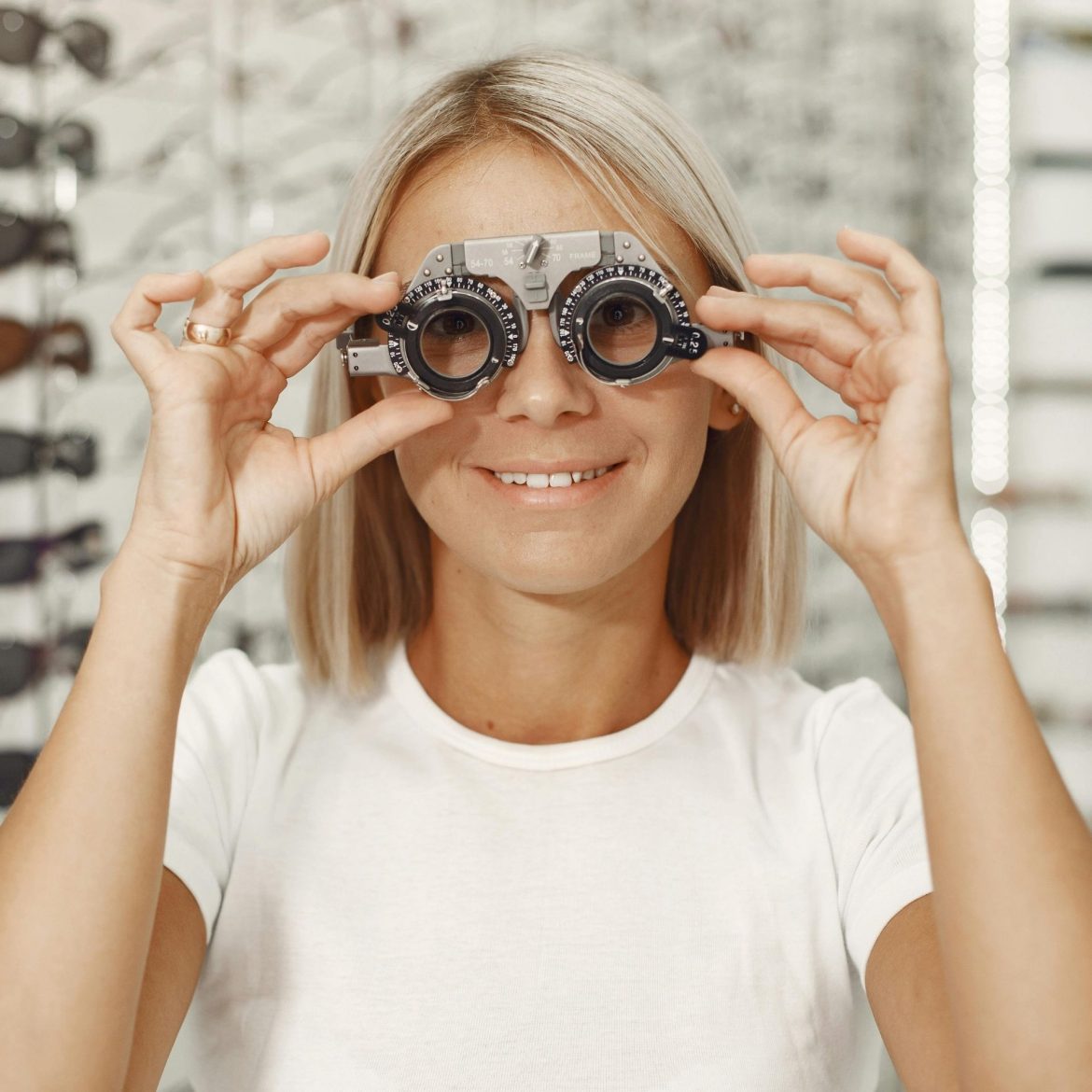![]()
Have you ever wondered how to tell if you need prescription glasses? There are obvious signs and not-so-obvious signs. If you’ve found yourself tilting your head to see a traffic signal or squinting just to see a menu in your hand, heads up! You might need prescription eyeglasses.
Don’t worry about how they might make you look or whether or not you’ll find frames that fit your aesthetic. Trust me; the right eyewear is worth it. But we haven’t even gotten to that point yet! I’m here to help you assess the situation.
Do You Need Prescription Glasses? The Obvious Clues
There’s no subtlety in these symptoms. When you experience them, you feel compromised. These are the telltale signs you need to book an appointment with an eye doctor.
- Diplopia: Also known as “double vision,” diplopia is an alarming symptom that is not always related to eye health. Several issues can be at the root of this condition, from temporary fatigue to neurological problems, but the bottom line is that you need an expert opinion. The sooner, the better!
- Persistent Blurry Vision: If your vision frequently seems cloudy, don’t ignore the problem; get your eyes checked! This could signify refractive errors, including nearsightedness, farsightedness, and astigmatism, or a more serious medical condition.
- Frequent Eye Strain and Headaches: When you don’t see as well, your eyes have to work harder. That often causes eye strain and headaches.
- Difficulty Focusing: If you begin to experience trouble focusing on a single point or don’t focus as quickly, there could be something wrong with your vision. Your eyes should shift focus or gaze smoothly and efficiently, regardless of the distance. When you start to lose this ability, it’s time to visit your eye doctor.
- Halos Around Lights: Seeing faint diffractions (waves) around lights happens to all of us sometimes. However, regularly seeing bright halos of light can be a sign of underlying eye conditions, especially astigmatism. You might also need to get tested for cataracts and glaucoma.
Sneakier Signs You Might Need Prescription Eyeglasses

It’s easy to overlook or be tempted to ignore these symptoms. Don’t. Always be attentive to signals telling you that you might need prescription glasses. Getting checked out just might save your vision!
- Frequent Eye Rubbing: Rubbing your eyes often can be caused by underlying conditions that irritate your eyes. Don’t ignore it.
- Tired Eyes: If you’ve had a good night’s sleep and still your eyes feel tired, it could be a sign of an uncorrected eye condition.
- Watery or Dry Eyes: Watery or dry eyes can have several causes, not just the need for prescription glasses. They are also symptoms of eye strain caused by uncorrected refractive errors.
- Problems with Night Vision: If you’re beginning to experience difficulty seeing at night, especially when driving, you might need prescription eyeglasses. Night vision problems are often associated with nearsightedness, so see your doctor as soon as possible.
- Head Tilting or Squinting: When you squint or tilt your head to see better, you could be trying to compensate for blurry vision. This isn’t natural, and you should consider that there may be underlying conditions causing this.
Other Factors To Consider
Aside from the signs and symptoms noted above, the following factors might be pointing to a need for prescription eyeglasses:
- Age: As you get older, especially when you hit your 40s, it’s important to be more attentive to your eyes. Vision naturally degrades with age. There’s a condition called presbyopia caused by a loss of eye flexibility. It makes it difficult to focus on nearby objects.
- Family History: Genetics plays a part in your vision, particularly in refractive errors. If your parents or siblings wear glasses, there’s a strong chance you will, too.
- Screen Time: If you spend a lot of time in front of screens, you could be straining your eyes and compromising your vision, which might accelerate your need for prescription eyeglasses.
Do You Think You Need Prescription Eyeglasses? Here Are Your Next Steps
If any of the obvious symptoms listed above seem familiar, or if you consistently experience the not-so-obvious signs, your eyes might be telling you that you need prescription glasses. Your next step is to book an appointment with your eye doctor. Don’t hesitate! Get that on your to-do list as soon as possible.
The eye care office will schedule a comprehensive exam for you. It will likely include a visual acuity test, a refraction test, and an overall eye health assessment. Once you get your diagnosis and prescription, ask your eye doctor to recommend the best type of eyewear for your needs. Then, head to your favorite online eyewear store and pick up a pair of stylish frames.
Prescription eyeglasses sometimes take time to get used to, but I have no doubt you’ll be glad you can see more clearly in the end. Plus, it can be fun to switch up your style with a simple pair of glasses. There are so many colors and designs to choose from!
Remember: Taking care of your eyes, from creating healthy habits to seeing your eye doctor regularly, is a proactive step to clearer vision and long-term eye health.


